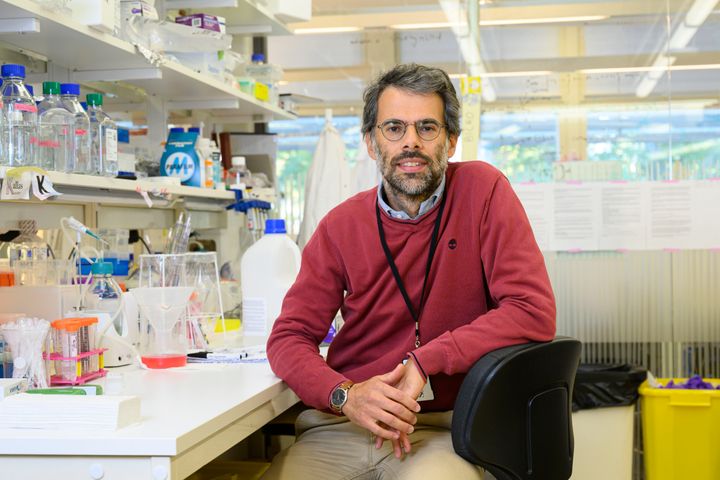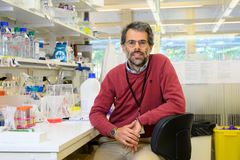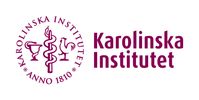Low-cost method for finding new coronavirus variants
Researchers at Karolinska Institutet in Sweden have developed a technology for cost-effective surveillance of the global spread of new SARS-CoV-2 variants. The technique is presented in the scientific journal Nature Communications.

Since the onset of the pandemic, thousands of viral genomes have been sequenced to reconstruct the evolution and global spread of the coronavirus. This is important for the identification of particularly concerning variants that are more contagious, pathogenic, or resistant to the existing vaccines.
For global surveillance of the SARS-CoV-2 genome, it is crucial to sequence and analyse many samples in a cost-effective way. Therefore, researchers in the Bienko-Crosetto laboratory at Karolinska Institutet and Science for Life Laboratory (SciLifeLab) in Sweden have developed a new method, named COVseq, that can be used for surveillance of the viral genome on a massive scale at a low cost.
First, many copies of the viral genome are created using so-called multiplex PCR (polymerase chain reaction). The samples are then labelled and pooled together in the same sequencing library, using a previous method developed in the Bienko-Crosetto laboratory and now adapted for SARS-CoV-2 analysis.
”By performing reactions in very small volumes and pooling together hundreds of samples into the same sequencing library, we can sequence potentially thousands of viral genomes per week at a cost of less than 15 dollars per sample,” says Ning Zhang, who previously worked as a postdoctoral researcher at the Department of Medical Biochemistry and Biophysics, Karolinska Institutet and is co-first author together with PhD students Michele Simonetti and Luuk Harbers active at the same department.
Comparative analyses of 29 SARS-CoV-2 positive samples revealed that COVseq had a similar ability as the standard method to identify small changes in the genome. Analyses of 245 additional samples showed that COVseq also had a high ability to detect emergent coronavirus variants of potential concern. The key advantage of COVseq over existing methods is cost-effectiveness.
”Our inexpensive method could immediately be used for SARS-CoV-2 genomic surveillance by public health agencies and could also be easily adapted to other RNA viruses, such as influenza and dengue viruses,” says Nicola Crosetto, senior researcher at the Department of Medical Biochemistry and Biophysics, Karolinska Institutet, and last author of the paper.
The study was done in collaboration with researchers at the 'Amedeo di Savoia' Hospital and the Candiolo Cancer Institute in Turin, Italy. The research was supported by grants from the SciLifeLab National COVID-19 Research Program, financed by the Knut and Alice Wallenberg Foundation, and grants from the Swedish Foundation for Strategic Research, as well as private donations from Chiesi Pharma AB and the Tetra Laval Group. The authors declare no competing interests.
Publication: ”COVseq is a cost-effective workflow for mass-scale SARS-CoV-2 genomic surveillance”. Michele Simonetti, Ning Zhang, Luuk Harbers, Maria Grazia Milia, Silvia Brossa, Thi Thu Huong Nguyen, Francesco Cerutti, Enrico Berrino, Anna Sapino, Magda Bienko, Antonino Sottile, Valeria Ghisetti and Nicola Crosetto. Nature Communications, online 23 June 2021, doi: 10.1038/s41467-021-24078-9.
For more information, please contact: Nicola Crosetto, MD, PhD The Bienko-Crosetto Laboratory for Quantitative Genome Biology Science for Life Laboratory Department of Medical Biochemistry and Biophysics, Karolinska Institutet E-mail: nicola.crosetto@ki.se Phone: +46 73 986 53 79
Contacts
Contact the Press Office and download photo: ki.se/pressroom
Images

Karolinska Institutet (https://ki.se/en) is one of the world’s leading medical universities. Our vision is to advance knowledge about life and strive towards better health for all. Karolinska Institutet accounts for the single largest share of all academic medical research conducted in Sweden and offers the country’s broadest range of education in medicine and health sciences. The Nobel Assembly at Karolinska Institutet selects the Nobel laureates in Physiology or Medicine.
Subscribe to releases from Karolinska Institutet - English
Subscribe to all the latest releases from Karolinska Institutet - English by registering your e-mail address below. You can unsubscribe at any time.
Latest releases from Karolinska Institutet - English
New method reveals how the brain and inner ear are formed3.4.2025 20:00:00 CEST | Pressmeddelande
Researchers at Karolinska Institutet have developed a method that shows how the nervous system and sensory organs are formed in an embryo. By labelling stem cells with a genetic ‘barcode’, they have been able to follow the cells’ developmental journey and discover how the inner ear is formed in mice. The discovery, published in Science, could provide important insights for future treatment of hearing loss.
Fluoride in drinking water is associated with impaired childhood cognition7.3.2025 15:30:00 CET | Pressmeddelande
Elevated concentrations of fluoride can occur in well water, and in some countries, it is added to drinking water to counteract caries in the population. A study from Karolinska Institutet in Sweden now supports a few previous studies indicating that exposure to fluoride during the fetal stage or early childhood may impair cognition in children. The study is published in the journal Environmental Health Perspectives.
Children with ARFID face increased risk of disease17.2.2025 17:00:00 CET | Pressmeddelande
Children with avoidant restrictive food intake disorder (ARFID) have an elevated risk of developing psychiatric and physical conditions, a new study from Karolinska Institutet published in JAMA Pediatrics reports. The study highlights the importance of early identification to improve care of these children.
Preterm babies receive insufficient pain management27.1.2025 15:29:17 CET | Pressmeddelande
A large proportion of babies born very early need intensive care, which can be painful. But the healthcare system fails to provide pain relief to the full extent. This is shown by the largest survey to date of pain in neonatal care, now published in the journal Pain.
New study paves way for immunotherapies tailored for childhood cancers20.1.2025 17:00:00 CET | Pressmeddelande
Researchers at Karolinska Institutet and the Astrid Lindgren Children’s Hospital in Sweden have determined how children’s immune systems react to different kinds of cancer depending on their age. The study, which is published in the journal Cell, reveals significant differences between the immune response of children and adults, and has the potential to lead to new tailored treatments for children with cancer.
In our pressroom you can read all our latest releases, find our press contacts, images, documents and other relevant information about us.
Visit our pressroom